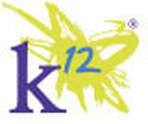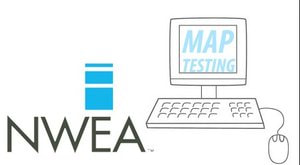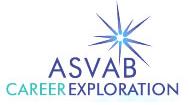TESTING & ASSESSMENTS
Assessments can be intimidating. No matter how you phrase it, there is an element of judging whether someone has met some sort of expectation, and not knowing with whom the results will be shared.
At I∙School, we use assessments in two main ways: to inform us -- the staff -- so we can understand your student better, and to inform you -- the parents and students -- as to how well we are doing at reaching the goals we establish with you at the beginning of the year. We don’t want to know how well your child fits into a one-size-fits-all box. We want to know how to design the box to fit you, and how to redesign it over time as your student grows.
At I∙School, we use assessments in two main ways: to inform us -- the staff -- so we can understand your student better, and to inform you -- the parents and students -- as to how well we are doing at reaching the goals we establish with you at the beginning of the year. We don’t want to know how well your child fits into a one-size-fits-all box. We want to know how to design the box to fit you, and how to redesign it over time as your student grows.
Each student is a blank slate to us, and assessments allow us to have an insight into each child’s relative strengths and area where additional support may be needed.
Transcripts from other schools don’t tell us a lot about a child’s spatial perception or abstract reasoning, for example, but MindPrint does.
Two, assessments are one of many ways we show accountability for our results. We set academic goals at the beginning of the year with each family, and review progress along the way relative to national norms and standards. As we are a private non-profit with no government funding and thus no reporting strings attached, the results are shared with the parents and no one else.
Two, assessments are one of many ways we show accountability for our results. We set academic goals at the beginning of the year with each family, and review progress along the way relative to national norms and standards. As we are a private non-profit with no government funding and thus no reporting strings attached, the results are shared with the parents and no one else.
Here are some of the assessments and tests we use and why. Most of these are available directly to parents; feel free to try them out!
|
ACT Aspire – Documenting Progress in English, Math and Science for Grades 3-10
The relatively new ACT Aspire provides a baseline understanding of student progress in English, reading, writing, math and science from grades 3 through 10, aligned to national Common Core State Standards. (Juniors and seniors are expected to take the ACT test, also produced by the same organization.) We administer these tests three to five times a year, so parents can document progress across all subjects over time. There are multiple question types, and scores for College and Career Readiness are also provided. |
But how do we know these scores are meaningful? The non-profit ACT provides ongoing research to reflect changes in college and career readiness standards. A forthcoming paper has documented that the ACT English and math sections are the most reliable predictors of success in college through sophomore year. That level of research is reflected in the ACT Aspire.
|
K12 – Placement Testing for Language Arts
The K12 curriculum is arguably strongest in English, perhaps because of its emphasis on a classical approach to education. We like their placement testing for reading, language arts and writing for students as young as five up to eighth grade, because it helps us place your student in courses that are just right -- not too difficult or too easy. |
|
Kolbe (A, Y, B, R)
The guidelines for completing the Index are few and simple. Answer questions according to how you would naturally act. Don't overanalyze. Don't let anyone else influence your answers or interpret the questions for you. Choose ONE most and ONE least likely option for every item, focusing on how you act when free to be yourself. |
A: IQ tests tell you what you can do. Personality tests tell you what you want to do... the Kolbe A™ Index measures what you WILL or WON'T do. This quick and easy 36-question instrument gives you greater understanding of your own natural instincts and allows you to begin the process of maximizing your potential. The Kolbe A™ Index provides instant results. It is also the first step in the Kolbe MO+™ process. Begin now and find the freedom to be yourself.
Y: The Kolbe Y Index helps young people identify their natural striving instincts - and provides advice on how to best use those strengths - to achieve success simply by being themselves.
B: Finding a career that matches your instinctive talents offers you the freedom to be yourself. The Kolbe B™ Index is a quick and easy 24-question instrument that measures the functional demands of your current position. The results help you understand which of your talents will be a natural fit for the job. The Kolbe B™ Index provides instant results. Begin now and map your path to success.
R: What do you really look for in a relationship? Do you want your date to plan the evening from start to finish or do you like to "fly by the seat of your pants"? Do you wonder why you are impatient when your Uncle insists on the same Thanksgiving dinner every year? ... The Kolbe R™ Index, a 36-question instrument, will reveal the instinctive being you are looking for ... in a friend, a spouse, a family member, a coworker ... instantly! Begin now and take the first step in gaining a better understanding of your relationship with others.
Y: The Kolbe Y Index helps young people identify their natural striving instincts - and provides advice on how to best use those strengths - to achieve success simply by being themselves.
B: Finding a career that matches your instinctive talents offers you the freedom to be yourself. The Kolbe B™ Index is a quick and easy 24-question instrument that measures the functional demands of your current position. The results help you understand which of your talents will be a natural fit for the job. The Kolbe B™ Index provides instant results. Begin now and map your path to success.
R: What do you really look for in a relationship? Do you want your date to plan the evening from start to finish or do you like to "fly by the seat of your pants"? Do you wonder why you are impatient when your Uncle insists on the same Thanksgiving dinner every year? ... The Kolbe R™ Index, a 36-question instrument, will reveal the instinctive being you are looking for ... in a friend, a spouse, a family member, a coworker ... instantly! Begin now and take the first step in gaining a better understanding of your relationship with others.
|
Lexile
The Lexile Framework is a scientific way to match readers with text using the same scale. Recognized as the standard for matching readers with texts, Lexile measures and connects learnings of all ages with resources at the right level of challenge. |
A Lexile® measure represents either an individual's reading ability (a Lexile reader measure) or the complexity of a text (a Lexile text measure). Lexile measures range from below 200L for early readers and text to above 1600L for advanced readers and materials. When used together Lexile measure help a reader find books at an appropriate level of challenge, and determine how well that reader will likely comprehend a text. When a Lexile text measure matches a Lexile reader measure, this is called a "targeted" reading experience. The reader will likely encounter some level of difficulty with the text, but not enough to get frustrated. This is the best way to grow as a reader - with text that's not too hard but not too easy.
Lexile helps us identify the correct reading level for students, and provides a clear way to monitor progress toward college and career readiness.
Lexile helps us identify the correct reading level for students, and provides a clear way to monitor progress toward college and career readiness.
|
Mindprint – Understanding Cognitive Skills and How Students Learn
Like a fingerprint, each mind is unique. Mindprint enables parents and educators to understand how an individual child learns best so the child can be given the optimal supports to succeed in the cognitive areas of Abstract Reasoning, Attention, Flexible Thinking, Processing Speed, Spatial Perception, Verbal Memory, Verbal Reasoning, Visual Memory, Visual Motor Speed, and Working Memory. |
At the core of Mindprint is an online, one hour scientifically valid cognitive battery originally developed at the University of Pennsylvania Perelman School of Medicine for NASA astronauts, and now tested in over 10,000 children. Mindprint identifies areas of giftedness, learning challenges and cognitive strengths so parents and educational specialists can effectively support each child in school and beyond. Specific recommendations are provided to improve homework efficiency, test performance and learning engagement. I∙School was proud to be the first school in which Mindprint was tested in an organizational setting. We are confident you won’t find a test quite like it anytime soon.
Mindprint can be particularly helpful if you know or suspect a child might be: gifted in a specific area, twice exceptional (gifted with a learning difference), underperforming in school relative to his or her potential, struggling with ADHD/ADD, struggling with executive functions (attention, organization, planning, etc.), struggling with a reading problem, on the autism spectrum, underperforming on school or standardized tests, slower at processing information, or forgetful or have weak memory.
Mindprint can be particularly helpful if you know or suspect a child might be: gifted in a specific area, twice exceptional (gifted with a learning difference), underperforming in school relative to his or her potential, struggling with ADHD/ADD, struggling with executive functions (attention, organization, planning, etc.), struggling with a reading problem, on the autism spectrum, underperforming on school or standardized tests, slower at processing information, or forgetful or have weak memory.
|
NWEA Measurement of Academic Progress (MAP)
Measures of Academic Progress® (MAP®) creates a personalized assessment experience by adapting to each student’s learning level—precisely measuring student progress and growth for each individual. This assessment measures the growth of every student over time regardless of on, above, or below grade level performance—and even if standards change. |
You’ll have essential information about what each student knows and is ready to learn within 24 hours. This assessment is a computer adaptive interim assessment for grades 2 – 12. Subjects include reading, language usage, and mathematics (includes Spanish-language version of MAP Mathematics). The test is untimed, but a typical student completes in under 60 minutes /subject area.
“It used to be that we talked about differentiation but we didn’t really provide a lot of time or resources or focus for that. MAP has given us a way to focus. Now teachers have a plan for how they use time for either intervening with students that need it, or providing enrichment to challenge those higher-level students.” -Dr. Jody Woodrum, Assistant Superintendent for Teaching and Learning Bulloch County Schools, Georgia
“It used to be that we talked about differentiation but we didn’t really provide a lot of time or resources or focus for that. MAP has given us a way to focus. Now teachers have a plan for how they use time for either intervening with students that need it, or providing enrichment to challenge those higher-level students.” -Dr. Jody Woodrum, Assistant Superintendent for Teaching and Learning Bulloch County Schools, Georgia
Gallup's StrengthsFinder assessment is an important first step in helping people identify their talents by giving people a way to discuss and develop their unique combination of skills, talents, and knowledge -- also known as strengths. This assessment will help you: discover your top five strengths, identify your dominant talents, learn how to maximize your talents, gain an introduction to strengths development, and learn how to use your strengths in everything you do.
Other Tests of Interest...
|
Accuplacer – College Placement in Math, Reading and Writing
About 50% of students graduating from Washoe County School District require remedial English, math, or both – on their own time and not for college credit -- before being allowed to take other college courses. Avoid this by scoring high enough on Accuplacer to test out of remedial English and math. |
Accuplacer – brought to you by the SAT and AP people, the College Board -- is the test that determines who takes remedial English or math. Over 1,500 colleges and institutions -- including Sierra College, University of Nevada Reno, Truckee Meadows Community College, and Western Nevada College – rely on Accuplacer to place students in college math, reading, and writing as part of the enrollment process.
Accuplacer tests use a computer-based, multiple-choice format (except for WritePlacer, the written essay assessment). There’s no time limit on the tests, so you can focus on doing your best to demonstrate your skills. Definitely take some practice tests ahead of time through Accuplacer or Washoe County Library to prepare. The main subject tests are Arithmetic, College-Level Math, Elementary Algebra, Reading Comprehension, Sentence Skills, and WritePlacer (the written essay).
Accuplacer tests use a computer-based, multiple-choice format (except for WritePlacer, the written essay assessment). There’s no time limit on the tests, so you can focus on doing your best to demonstrate your skills. Definitely take some practice tests ahead of time through Accuplacer or Washoe County Library to prepare. The main subject tests are Arithmetic, College-Level Math, Elementary Algebra, Reading Comprehension, Sentence Skills, and WritePlacer (the written essay).
|
Armed Services Vocational Aptitude Battery (ASVAB) – Identifying Career Aptitudes
The ASVAB is a multiple-aptitude battery that measures developed abilities and helps predict future academic and occupational success. It is the most well-established aptitude test in the world, administered annually to more than one million military applicants, high school, and post-secondary students to help students learn more about career exploration and planning, in both the civilian and military worlds of work. The total time required is three to four hours. |
|
WorkKeys
WorkKeys – another ACT product -- is a skills assessment system that helps employers select, hire, train, develop, and retain a quality workforce. The assessments measure foundational and soft skills of interest to future employers. Students, job seekers, and seasoned professionals can use WorkKeys to learn more about their strengths and weaknesses and gain a valid way to demonstrate their abilities to employers. Educators and employers can use it to help take the guesswork out of determining student, applicant, and employee qualifications. |
Successful completion of WorkKeys assessments in Applied Mathematics, Locating Information, and Reading for Information can lead to earning the National Career Readiness Certificate (NCRC), a portable credential earned by more than 3 million people across the United States.










